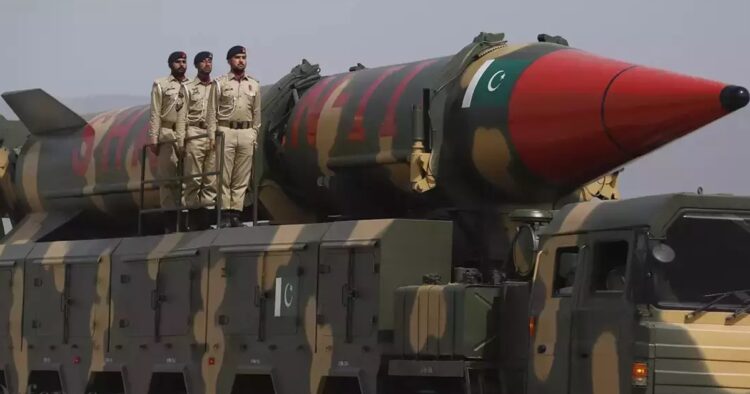A recent report by the Stockholm International Peace Research Institute (SIPRI) reveals significant changes in the nuclear arsenals of various countries. As per the report, China has notably increased its nuclear weapons from 410 in January 2023 to 500 by January 2024. This expansion indicates China’s ongoing efforts to grow its nuclear capabilities.
SIPRI’s analysis highlights that nine nuclear-armed nations—the United States, Russia, the United Kingdom, France, China, Bharat, Pakistan, North Korea, and Israel—have continued to modernize their nuclear arsenals. Throughout 2023, several of these countries deployed new nuclear-capable weapon systems. This modernization effort underscores the global trend toward maintaining and enhancing nuclear capabilities.
Bharat and Pakistan: A Close Comparison
Bharat now possesses more nuclear weapons than Pakistan. As of January 2024, India has 172 “stored” nuclear warheads, slightly more than Pakistan’s 170. Over the past year, both countries have been actively developing new types of nuclear delivery systems. While Pakistan remains the primary focus of India’s nuclear deterrent, Bharat is increasingly emphasizing the development of longer-range weapons that can reach targets across China.
The report also mentions that about 2,100 deployed warheads are kept in a state of high operational alert, ready to be launched at a moment’s notice. Nearly all of these warheads belong to Russia and the US. However, for the first time, China is believed to have placed some of its warheads on high operational alert, marking a significant shift in its nuclear posture.
ALSO READ: “Bharat Conducts Successful Test of Upgraded Medium-Range Ballistic Missile”
Dominance of Russia and the US
Russia and the United States together hold almost 90 percent of the world’s nuclear weapons. The report estimates that Russia has deployed around 36 more warheads with operational forces compared to January 2023. Despite China’s growth, its nuclear stockpile is expected to remain much smaller than those of Russia or the US.
The SIPRI report underscores the ongoing nuclear arms race among major powers. With China rapidly expanding its arsenal and Bharat overtaking Pakistan, the global nuclear landscape is becoming increasingly complex. As these nations continue to modernize their capabilities, the importance of international arms control agreements and diplomatic efforts to prevent nuclear proliferation cannot be overstated.

















Comments